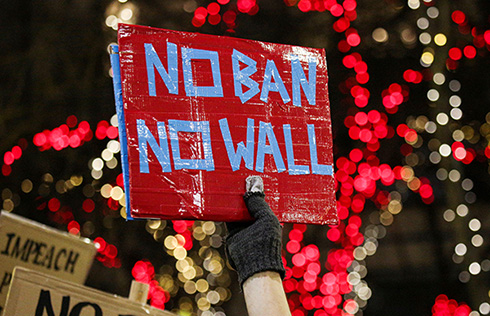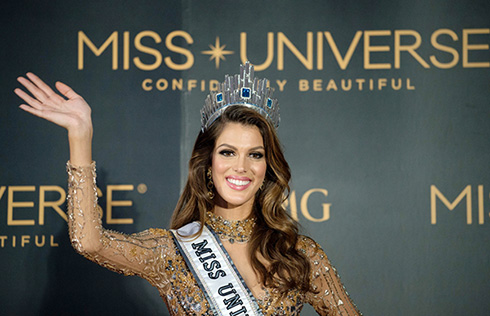Gay-marriage cases to define US court legacy
WASHINGTON?- When the US Supreme Court considers the constitutionality of marriage for gay men and lesbians in the coming week, the justices will be taking a major step toward defining their own legacy.
In their first-ever review of same-sex marriage laws, the nine justices on the country's highest court are hearing arguments on Monday and Tuesday on one of the most politically charged dilemmas of the day, bound with themes of religion, sexuality and social custom.
The paired cases will be heard at a time when opinion polls show surging approval for gay unions and when prominent individuals and groups, such as the American Academy of Pediatrics, have been announcing support for same-sex marriage on a nearly daily basis.
Beyond the public drama, and central to the justices' regard for their own role, the marriage dispute offers a classic test of when courts should intervene in social dilemmas that have traditionally been the province of the states.
With such cultural and judicial crosscurrents, the controversy naturally draws a comparison to one of the court's most defining cases in the past 40 years. The 1973 Roe v. Wade decision made abortion legal nationwide just as states were weighing related legislation. The ruling generated a social and political backlash that endures today.
When the court declared a fundamental right to abortion, it preempted more permissive abortion laws that were emerging in some states. The ruling fortified political conservatism and the religiously based "right to life" movement. Some liberals who backed abortion rights, including now-Supreme Court Justice Ruth Bader Ginsburg, criticized Roe's sweeping rationale and its "rallying point" for the anti-abortion rights movement.
Some opponents of same-sex marriage have invoked the aftermath of Roe as they warn the justices against going too far too fast. They say that if the court forces all 50 states to accept gay marriage, the same as for abortion rights four decades ago, it will only prolong the gay-rights conflict.
Supporters of marriage for gay men and lesbians declare the comparison to Roe inapt and highlight the court's historic role of protecting minorities against bias. They say it would be wrong to wait to declare a constitutional right until more states, beyond the current nine and the District of Columbia, allow same-sex marriage.
Whether the court will be in sync with public opinion or seek to wait for more state action is difficult to predict. But it is likely that Justice Anthony Kennedy, who wrote the court's earlier two opinions supporting gay rights, albeit in narrower contexts, would play a leading role.
Harvard University constitutional law professor Richard Fallon observes that while Kennedy, a 76-year-old appointee of Republican President Ronald Reagan, subscribes to a limited judicial role in societal problems, he has become "the champion of gay rights." Fallon points to increasing public support for gay marriage and speculated that Kennedy would not want to be "on the wrong side of history."
Fallon also notes that unlike four decades ago with abortion, today's justices are fully conscious of tensions surrounding the issue. "In 1973, the court was completely blindsided by the reaction against Roe v. Wade," he said. "I think this court is aware of what they're walking into."
A Reuters/Ipsos poll this month found Americans still deeply divided on abortion: 47 percent said it should be legal in all or most cases and 42 percent said that abortion should be illegal in all or most cases. A majority also said they did not want such laws in the hands of the Supreme Court.
For same-sex marriage and civil unions, a Reuters/Ipsos poll in mid-March found deep differences of opinion regionally, although support was at 63 percent nationwide. The greatest support was in the Northeast, with 69 percent of adults favoring a gay marriage or civil-union right. The lowest support was in the South, at 57 percent.
BENCH NEWCOMERS
It has been a decade since the court last took up a gay-rights case. Four new justices have joined the bench since then, including Chief Justice John Roberts, 58, who last year cast the deciding vote to uphold the Obama administration's healthcare law.
Roberts, a 2005 appointee of Republican President George W. Bush and a potential wild card in the current dispute, succeeded Chief Justice William Rehnquist, nearly 30 years his senior and an opponent of gay rights.
Justice Samuel Alito, also a Bush appointee, succeeded Sandra Day O'Connor in 2006; Alito has proven himself more conservative than O'Connor on social policy. Justices Sonia Sotomayor and Elena Kagan replaced David Souter and John Paul Stevens, in 2009 and 2010, respectively. Those appointees of President Barack Obama, a Democrat, would likely support gay rights as their predecessors did. ?
The two cases put the court on wholly new terrain. Prior gay-rights disputes tested a Texas criminal law against intimate homosexual relations and a Colorado prohibition on any anti-discrimination policy tied to sexual orientation. Both were struck down by 6-3 votes, in 2003 and 1996, respectively.
Tuesday's question is whether a state - California - may define marriage as only between a man and a woman. Supporters of Proposition 8 have implored the court to consider society's interests in procreation and childrearing by a man and woman. Opponents of the 2008 California ballot measure counter that the loving relationships of all couples deserve equal respect under the law. They cite the US Constitution's guarantees of equal protection and due process.
Wednesday's arguments will focus on whether the federal government may, under the 1996 Defense of Marriage Act (DOMA), deny benefits to married gay and lesbian couples that are a right of their heterosexual counterparts. ? ?
The Obama administration has urged the court to strike down California's Proposition 8 and the DOMA provision. It also is seeking a level of constitutional protection for gay men and lesbians that would likely lead to same-sex marriage nationwide.
Whether the court is ready to take that leap is uncertain. As a group, these nine are more conservative than the court of the 1970s and more concerned about judges encroaching on the realm of legislators.


























